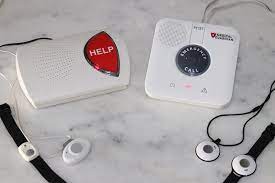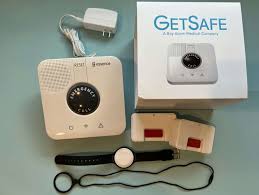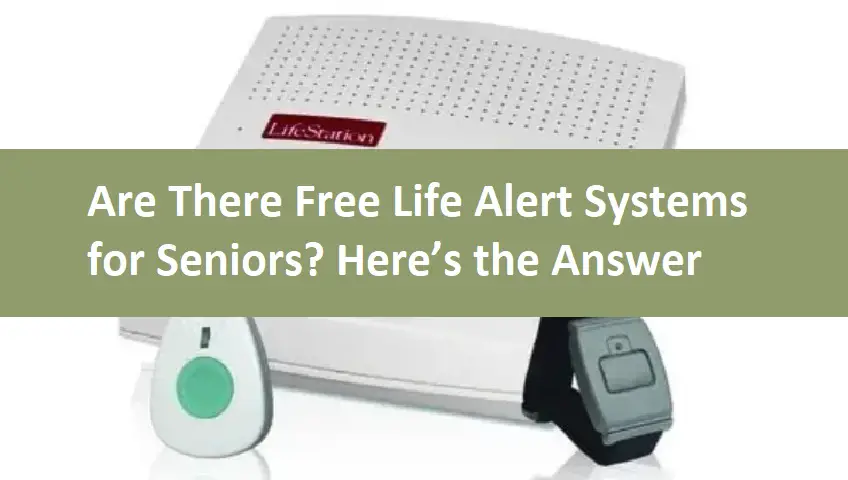There are many seniors who live alone and may need help in an emergency. This is where a life alert system can come in handy. These systems can notify emergency services if there is an issue and provide peace of mind for seniors and their loved ones. But are there any free life alert systems available? In this blog post, we will explore how to get free life alert systems as well as ways to save on these systems. So whether you are looking for a new life alert system or are just trying to save some money, read on!
What Is a Medical Alert System?
A medical alert system is a device that seniors can wear in case of an emergency. It usually consists of a base unit and a wearable device, such as a pendant or bracelet. If an emergency arises, the senior can press a button on the wearable device, and it will send an alert to the base unit. The base unit will then contact emergency services or a pre-defined list of contacts, such as family members or neighbors. That way, you can rest assured that your loved one is safe and can receive help if needed.
What Are the Benefits of Medical Alert Systems?
Medical alert systems provide peace of mind for seniors and their families. They allow seniors to live independently, knowing that help is just a button away in case of an emergency. The systems can also detect falls, which is particularly helpful for seniors who are at risk of falling. Additionally, medical alert systems can be used to monitor a senior’s vital signs and provide reminders for medications. Therefore, they can help seniors maintain their health and well-being.
How Much Does a Medical Alert System Cost?

Medical alert systems can vary in price, depending on features and the type of system. For instance, systems that provide fall detection and monitoring features tend to be more expensive than systems with basic features. But, generally speaking, a good medical alert system can cost anywhere from $20 to over $100 per month.
However, it is also important to consider all the costs associated with a medical alert system, such as set-up fees, monthly fees, and any additional accessories. It is also important to check with your insurance provider, as some may cover a portion of the cost.
Although the initial investment may be off-putting, a medical alert system is worth trying. In fact, many of the companies offer a trial period or money-back guarantee. Also, many companies have no long-term contracts, so you can cancel anytime.
Are There Free Life Alert Systems for Seniors?
While life alert systems can provide much-needed peace of mind for seniors and their loved ones, the monthly subscription fees, along with installation, activation, and shipping costs, can be a financial burden.
Even though free or low-cost medical alert systems are not easy to find, some options are still available. For example, some insurance providers offer free systems to their members. Additionally, many organizations and charities offer free systems to low-income seniors.
Your ability to get coverage for a system will depend on what state you live in and which insurance provider you use. That is why it is important to reach out to your insurance company and ask about free medical alert systems. That way, you can get the coverage you need without paying extra out of pocket.
Do Health Insurance Plans Cover Medical Alert Systems?
Some health insurance plans cover medical alert systems, but the coverage will depend on each plan. Therefore, it is important to check with your insurance provider to see what coverage is available.
If you’re looking for a way to get your medical alert system covered by a private plan, long-term care insurance may be your best bet. Long-term care insurance is a type of insurance that helps cover the costs of long-term care, such as nursing home care, assisted living, and in-home health care.
Most long-term care policies offer benefits for medical alert systems. This means that you can typically use your long-term care policy to pay for the costs of a medical alert system. Additionally, many policies offer free or discounted rates for medical alert systems.
Contact your provider directly to find out if your long-term care policy covers a medical alert system. They will be able to tell you what types of coverage are available to you.
If your health insurance plan does not cover the cost of a medical alert system, you can still look into free systems from organizations and charities. While free systems are not widely available, they can be a great option for seniors who cannot afford to pay out of pocket.
Does Medicare Cover Medical Alert Systems?
Medicare is a federally funded health insurance program for people over the age of 65. It helps cover the costs of medical care, such as doctor’s visits, hospital stays, and prescription drugs.
Most senior citizens get their health insurance through Medicare Parts A and B. However, these two plans do not cover the cost of a medical alert system. Part A of Medicare is designed to pay for costs related to long-term care, such as hospitalizations. On the other hand, Part B is designated for short-term treatments like doctor’s visits, scans, and blood tests.
However, seniors enrolled in Medicare Advantage (Part C) may be able to claim a medical alert system through their plan.
Medicare Advantage plans are offered by private insurance companies and are required to include Part A and B services. However, many organizations also provide additional benefits, such as medically necessary devices or equipment. Still, it’s ultimately up to the provider to determine what is considered medically necessary.
Most of the time, “medically necessary” does not reference a certain condition. Instead, service providers look at every individual’s specific needs to see if a life alert system would help with their health. As an example, when an elderly person moves from living in a nursing home back into the community, it is often seen as medically necessary for them to have a medical alert system.
As was mentioned before, Part C of Medicare may provide coverage for medical alert systems. However, it’s important to confirm with your plan administrator whether this is the case for you. This is because Part C plans vary from state to state.
If you’re not sure whether or not your Part C plan includes coverage for a medical alert system, don’t hesitate to reach out to your plan administrator. They will be able to tell you exactly what services are covered under your particular plan.
Does Medicaid Cover Medical Alert Systems?

Medicaid is a government-funded health insurance program for people with low incomes and minimal resources. Unlike Medicare, which only covers seniors, Medicaid covers people of all ages.
If you have Medicaid, you may be eligible for coverage of a medical alert system. However, Medicaid programs are run by individual states, so the benefits can differ greatly.
However, many Medicaid waiver programs offer benefits such as a personal life alert system. This is especially common in waivers which are designed to encourage seniors to live independently at home. Having a medical alert system can help make many seniors feel safer and more comfortable.
Contact your state Medicaid office to find out if you’re eligible for coverage. They will be able to tell you what types of coverage are available to you.
Other Programs That Cover Life Alert Systems
In addition to Medicare and Medicaid, there are other programs that may cover the cost of a life alert system. For example, if you’re a veteran, you may be able to get free or discounted medical alert systems through the VA.
The VA has approved providers who offer free medical alert systems if you are a veteran. If you have TRICARE health care coverage, you might be able to get a medical alert system through your insurance; however, it isn’t guaranteed.
AARP also offers free medical alert systems to its members. If you are an AARP member, you may be eligible for free or discounted life alert devices.
Area Agencies on Aging (AAA) may also be able to help seniors find free or discounted medical alert systems. AAA organizations are nonprofit groups that provide resources, assistance, and services to seniors in their areas. Find your local AAA by visiting Eldercare.gov or calling 1-800-677-1116.
Be sure to find out more information about the organizations near you as well. These may be private or nonprofit organizations (and the name of the organization may vary by area), but they are designated to assist older people. You can visit Eldercare.gov or call 1-800-677-1116 to see a variety of resources for seniors in your area.
Other Ways to Save Money on a Medical Alert Systems
If you don’t have a Medicare Advantage plan, Medicaid, TRICARE, AARP membership, or access to an Area Agency on Aging program, there are still ways to save money on a medical alert system.
One of the easiest and most affordable options is to look for free or discounted trials. Many companies offer free or discounted trial periods for their systems. This can be a great way to try out the service without having to commit to a long-term contract.
You can also look for free life alert systems through local charities and nonprofits. In addition, some organizations, such as free clinics and food banks, may have free or discounted medical alert systems available. By doing some research and asking around, you may be able to find a free or discounted life alert system.
Finally, some companies offer discounts for seniors and other special groups. Be sure to ask your provider if they offer any discounts or special pricing.
If all else fails, you may be able to set up a payment plan with your provider if you can’t afford to pay for the system in full.
No matter your situation, there are free and discounted life alert systems for seniors. With a little research and effort, you may be able to find one that fits your needs and budget.
Conclusion
If you are a senior and are looking for free or discounted life alert systems, there may be options available to you. For example, Medicare Advantage plans, Medicaid waiver programs, the VA, AARP, and Area Agencies on Aging may all offer free or discounted life alert systems. Additionally, free trials and discounts from providers, free systems from charities and nonprofits, and payment plans with providers can help you save money on medical alert systems. So, take the time to research your options and you might be able to find free or discounted life alert systems for seniors.
Hopefully, this information has been helpful in finding free life alert systems for seniors. Thank you for reading!

Morgan Elfman is a compassionate writer, dedicated caregiver, and passionate advocate for senior well-being. Born and raised with a deep sense of empathy and a natural inclination towards service, Morgan has devoted her life to making a positive impact on the lives of seniors.
As a writer for www.choiceseniorlife.com, Morgan utilizes his skills to create insightful and informative content that addresses the unique needs and challenges faced by seniors and their families. Her articles not only provide valuable information on health, lifestyle, and care options but also strive to inspire and empower seniors to lead fulfilling lives.
